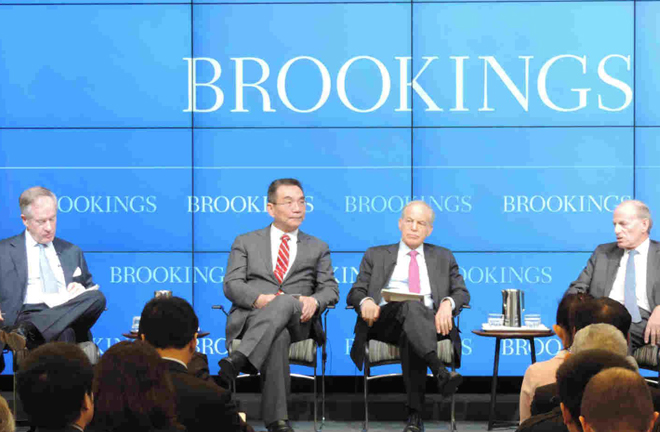Brookings forum highlights economics, governance

Brookings Institution is the most prominent think tank in the US.
On July 21, John L. Thornton China Center at the Brookings Institution hosted a seminar addressing the economic restructuring of China and the US economic recovery.
The US and China are the world’s largest and second-largest economies respectively, and as such, economic and trade relations between the two are a perennial subject of global debate. In the first half of the economic performance of the US has fallen short of expectations, said David Dollar, a senior fellow at the Brookings Institution. Hopefully, China is going to meet its target by the end of this year. Nonetheless, China’s economic growth is likely to slow down, he said.
The IMF estimated that the growth rate of the US economy might go slow by 0.5 percent. US economic development has been held back by some structural factors, such as energy prices and insufficient stimulus to domestic consumption.
People are frustrated with the sluggish job market, said Donald Kohn, a fellow at the Brookings Institution and former vice-chairman of the Board of Governors of the Federal Reserve System. Nonetheless, he suggested that the US has solid economic fundamentals, and its outlook is positive.
At the symposium, Chinese scholars were more concerned with establishing think tanks. In recent years, the Chinese government has prioritized the establishment of think tanks in its strategic plan, meaning the task is crucial for governance modernization, said Li Daokui, director of the Center for China in the World Economy at Tsinghua University. He is also the head of the Chinese delegation formed by think tank researchers and business professionals.
Zhang Xiaoxi is a reporter at the Chinese Social Sciences Today.

 PRINT
PRINT CLOSE
CLOSE